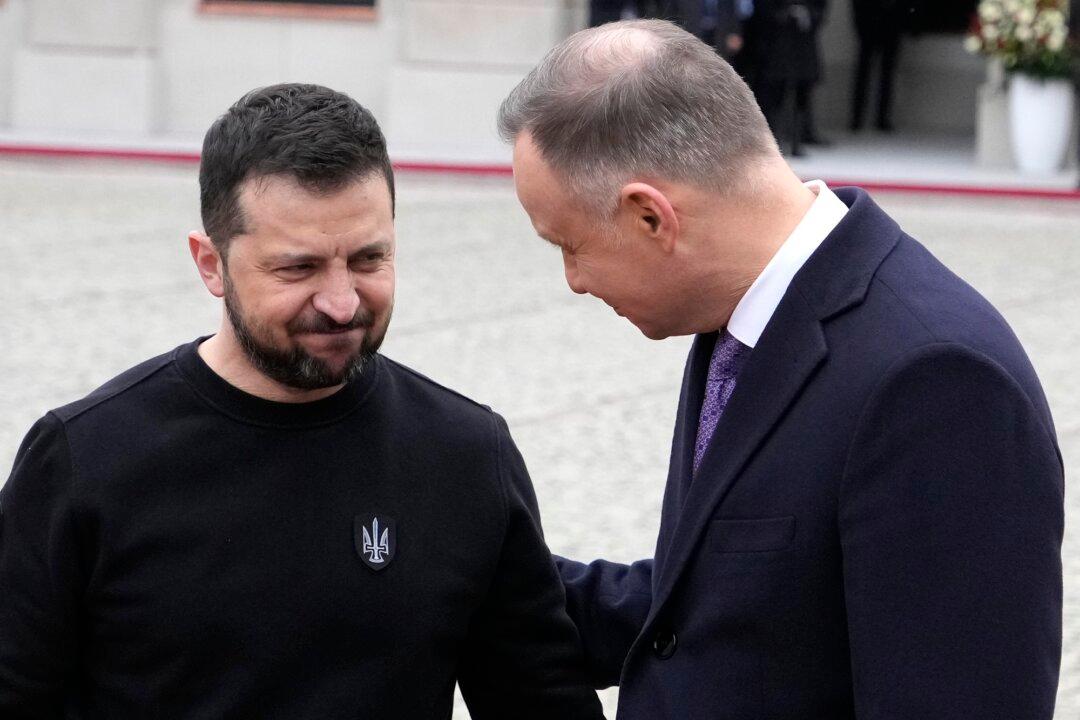Mounting friction between Kyiv and Warsaw—over grain exports and arms transfers—is a sign that Ukraine is “losing allies,” according to a prominent Russian lawmaker.
“European bureaucrats ... are gradually realizing how much it costs their countries—and themselves—to support [Ukrainian President Volodymyr] Zelenskyy,” Leonid Slutsky, head of the Russian State Duma’s International Affairs Committee, said on Sept. 20.





